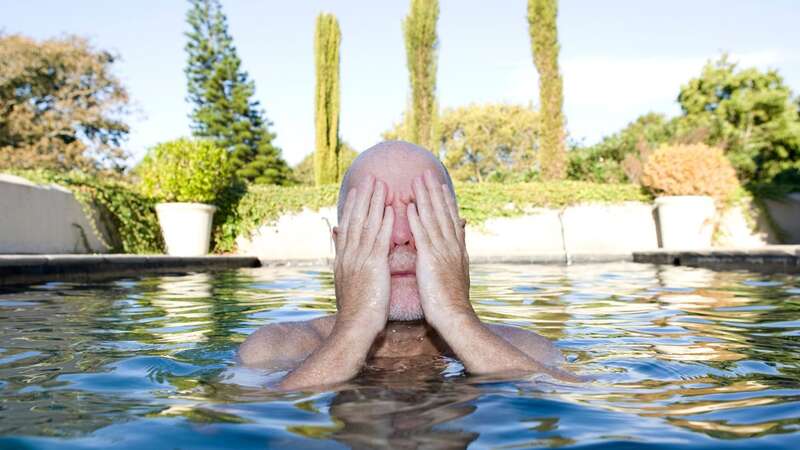
An optometrist has warned Brits that swimming in popular leisure spots without eye protection could lead to blindness, as Brits cool off amid the sweltering 31C temperatures.
Vision expert Morgan Sayes has alerted holidaymakers about the harmful bacteria that can be found lurking in water, as it could cause serious damage. In particular, the organism acanthamoeba - which can be found in lakes and swimming pools - could result in a serious eye disease if it infects the cornea.
In most cases acanthamoeba doesn’t cause harm, but an injury or scratch on the corneal surface can leave it vulnerable to infection. Morgan, from Lenstore, continued: "The symptoms of acanthamoeba keratitis include pain and redness, blurred vision, light sensitivity, a gritty sensation, and excessively watery eyes.
"In very severe cases acanthamoeba infections can cause loss of vision." Chlorine and other chemicals are often used to sanitise swimming pools, but the expert said "the chemical can form harmful by-products when it encounters organic compounds like sweat or skin."
Morgan explained: "These so-called chloramines can increase irritation and infection in your eyes, especially if you wear soft contact lenses, which are porous and absorb chemicals and bacteria. When exposed to fresh water, soft lenses can also tighten and starve your eyes of oxygen, leaving them feeling dry and uncomfortable.
 Lack of face-to-face GP appointments 'turning patients into DIY doctors'
Lack of face-to-face GP appointments 'turning patients into DIY doctors'
It is advised that you remove your contact lenses before plunging into a pool or invest in prescription goggles which keep your vision sharp under water. Swimming pools can also increase your risk of developing viral conjunctivitis, a common eye condition that involves inflammation of the conjunctiva - a thin membrane that lightly covers the whites of your eyes and the inside of your eyelids.
"Because chlorine does not effectively kill viruses, it can also be spread easily through contaminated swimming pools. The chlorine which is used to treat pools removes most of the water-borne bacteria, but it can’t get rid of them all," Morgan said.
Swimming in the ocean can also be harmful for your eyes, as one single drop of seawater harbours more than a million bacteria. While most of these microbes aren’t harmful to humans, in some cases they can cause painful and uncomfortable bacterial infections - leading to redness, itching, discharge and burning in the eyes.
Additionally, the high salt content in the sea can dehydrate the sensitive eye tissues, causing irritation, redness and itching. Unlike pools, which are regularly cleaned, there is lots of dirt and sediment in the ocean which if stirred up may cause blurry vision, sensitivity to light, and redness.
If you do get sand or debris stuck in your eyes, you shouldn’t rub your eyes as this can further scratch the surface of the cornea. Instead, you should blink several times and allow your tears to flush out the sand, and wash the eyes with clean water or a saline solution.
How to protect your eyes while swimming
You might not think twice about jumping in the pool or taking a swim in the ocean to cool yourself down when it’s hot, but there are many hidden dangers for your eyes that are lurking in the water.
Morgan said: "This is especially important for soft contact lens wearers, as these absorb chemicals and bacteria and can easily get lost if they detach in the water. The best way to protect yourself is by wearing goggles which fit comfortably on your nose and create a seal around your eyes without any gaps.
He added: "You should also remove your contact lenses every time you get in contact with water, whether that’s in the shower or in the swimming pool. While swimmer’s eye caused by chlorine in pools should subside after a few hours, if your symptoms last longer or get worse, you should seek professional medical advice as soon as possible."
Read more similar news:
Comments:
comments powered by Disqus

































